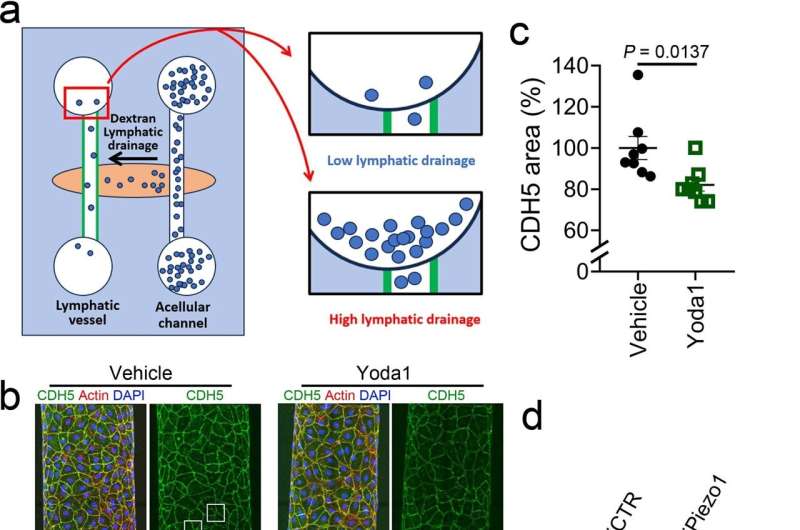This article has been reviewed according to Science X's editorial process and policies. Editors have highlighted the following attributes while ensuring the content's credibility:
fact-checked
peer-reviewed publication
trusted source
proofread
Researcher discovers drug that may delay onset of Alzheimer's, Parkinson's disease and treat hydrocephalus

A researcher in the Keck School of Medicine of USC's department of surgery has discovered a potential breakthrough in delaying the onset of Alzheimer's and Parkinson's disease and treating hydrocephalus. Young-Kwon Hong, Ph.D., the chief of basic science research in the department of surgery, and his team have developed a drug that can help clear fluid and cellular debris from the brain.
Much like the body, the brain has its own lymphatic system that clears away cellular waste. "It's a lot like a sewer system—and that means it has to drain well for it to work and keep everything clean," explained Hong. When the brain's lymphatic system isn't draining well, fluid and debris can build up. The fluid buildup means there is less room for cerebrospinal fluid, which cushions and nourishes the brain.
Hydrocephalus is a buildup of fluid within the brain. This fluid can push against both the skull and the brain itself. Since the skull's bone development is incomplete in children, hydrocephalus can cause a distortion in the skull as well as potential damage to the growing brain.
In adults, hydrocephalus causes the brain to push against the hardened skull, resulting in headaches and a range of symptoms, from vision problems to difficulties with coordination and cognitive issues. Parkinson's and Alzheimer's both have multiple causes, but waste and plaque buildup in the brain is a significant factor for each.
The advantage of bigger pipes
Hong's team theorized that they could speed up the draining of fluid and waste from the brain. "Think about a kitchen sink that's draining too slowly because it has a two-inch pipe," he said. "We can give you a four-inch pipe." Hong and his team first developed the idea of manually stimulating the drainage process, and then they developed a compound that triggers an increase in the diameter of the lymphatic vessels.
Hong's research was published in Nature Neuroscience in March of this year, and he and his team continue to move forward with this exciting development.
An unusual note to the story is that while Hong has decades of experience in medical and surgical research, he had not done any neuroscience research before this project—everything he had worked on had been from the neck down. He found his inspiration for this project in church.
A fellow member of Hong's congregation had adult hydrocephaly and experienced a terrifying sudden vision loss while driving on the freeway. When Hong heard of the incident, he knew he had to help. "I felt a spiritual calling. I had to do something."
Hong noted that even though this was his first neuroscience research, everything lined up and worked out remarkably well. And, of course, there is the potential to help millions of people around the world. "It has been incredible," he said. "This is a perfect blending of science and faith."
More information: Dongwon Choi et al, Piezo1 regulates meningeal lymphatic vessel drainage and alleviates excessive CSF accumulation, Nature Neuroscience (2024). DOI: 10.1038/s41593-024-01604-8


















